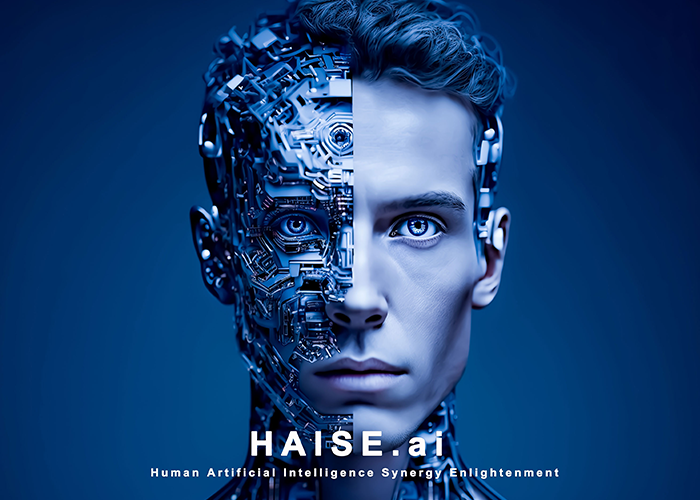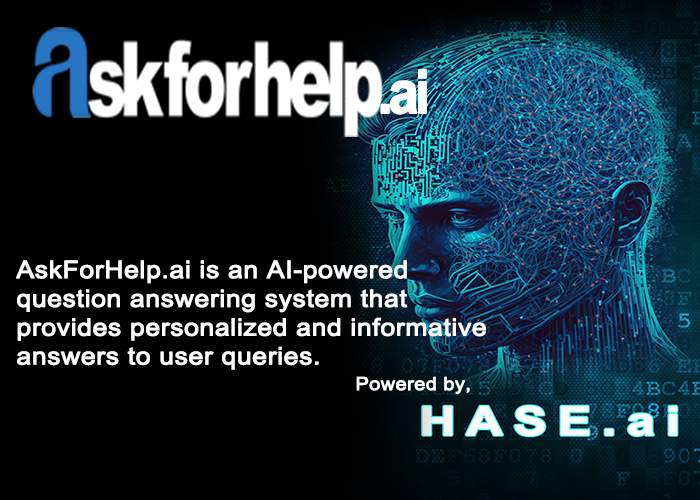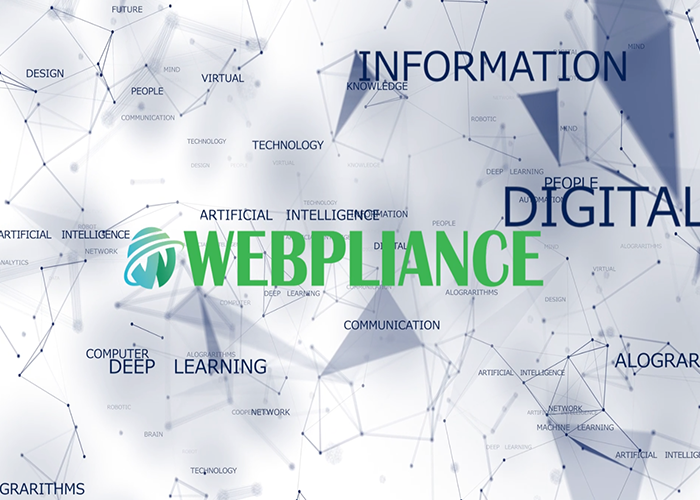AI Models to Enhance Business Roles
Leveraging HASE AI Models to Enhance Business Roles: A Comprehensive Approach
In today's fast-paced business environment, leveraging AI to optimize various functions within an organization is not just a competitive advantage but a necessity. At PeachWiz, we harness the power of HASE (Human AI Synergy Enlightenment) models to enhance roles such as Chief Artificial Intelligence Officer (CAIO), Customer Relationship Management (CRM), and sales. Here’s how dedicated HASE models can revolutionize these specific roles in business.
1. Chief Artificial Intelligence Officer (CAIO)
The role of a CAIO is pivotal in driving the AI strategy within an organization. A dedicated HASE model for CAIO can streamline various strategic, operational, and compliance aspects of the role.
Strategic AI Planning and Implementation:
- Developing AI Strategy: The HASE-CAIO model assists in defining AI strategies that align with business objectives, identifying AI opportunities, and creating implementation roadmaps.
- Project Management: It oversees the lifecycle of AI projects, ensuring they are on track, within budget, and aligned with strategic goals.
- Ethical AI Practices: The model ensures adherence to ethical AI guidelines, including bias mitigation, transparency, and accountability.
Operational Efficiency:
- Team Management: It aids in managing AI teams, providing real-time insights into team performance and project progress.
- Innovation Fostering: Encourages innovation by recommending the latest AI technologies and facilitating collaborations with research institutions.
2. Customer Relationship Management (CRM)
Effective CRM is crucial for maintaining strong customer relationships and driving business growth. The HASE-CRM model offers a tailored solution that enhances every aspect of customer management.
Personalization and Customer Insights:
- Advanced Data Analytics: The model processes vast amounts of customer data to provide deep insights into customer behavior and preferences.
- Personalized Interactions: It enables businesses to offer personalized customer experiences by predicting customer needs and automating responses.
Operational Integration:
- Seamless Integration: HASE-CRM integrates with existing systems like ERP, email marketing tools, and social media platforms, ensuring a unified customer data repository.
- Automation: Automates routine CRM tasks such as contact management, sales tracking, and customer service, freeing up human resources for more strategic activities.
Performance Monitoring and Improvement:
- Continuous Learning: The model incorporates a feedback loop to continuously learn from interactions, ensuring it evolves with customer behavior and market trends.
3. Sales
The sales function benefits significantly from AI through enhanced lead management, personalized selling, and performance optimization. The HASE-Sales model brings these capabilities to the forefront.
Lead Management and Optimization:
- AI-Driven Lead Scoring: It scores leads based on historical data and predictive analytics, ensuring sales teams focus on high-potential prospects.
- Sales Forecasting: Provides accurate sales forecasts by analyzing past sales data and market trends, aiding in strategic planning.
Personalized Selling:
- Tailored Sales Pitches: The model generates personalized sales pitches and recommendations for each lead based on their profile and behavior.
- Engagement Tracking: Monitors customer engagement across different channels and suggests the best times and methods to contact prospects.
Performance Analytics:
- Sales Performance Dashboards: Offers real-time dashboards that track key performance indicators (KPIs), providing insights into sales team performance and campaign effectiveness.
- Training and Development: Identifies skill gaps and recommends targeted training programs to enhance sales team capabilities.
4. Implementing HASE Models in Business
Implementing HASE models in business involves several strategic steps to ensure seamless integration and maximum impact.
a. Understanding Company-Specific Requirements:
- Engage with each business unit to understand their unique needs and goals.
- Conduct a thorough needs assessment to identify specific functionalities required.
b. Developing and Customizing Models:
- Develop a core HASE model using advanced AI algorithms.
- Customize the model to include industry-specific features and integrate it with existing systems.
c. Training and Deployment:
- Train the model using historical data to ensure accuracy.
- Deploy the model on a scalable cloud platform, ensuring robust security measures to protect data.
d. Continuous Support and Improvement:
- Provide comprehensive training and documentation to employees.
- Offer ongoing support and maintenance services, ensuring continuous improvement through feedback loops and regular updates.
Conclusion
The deployment of HASE models in roles such as CAIO, CRM, and sales exemplifies the transformative power of AI in business. By enhancing strategic planning, customer relationship management, and sales processes, HASE models drive operational efficiency, foster innovation, and ensure sustainable growth. PeachWiz's commitment to ethical AI practices and continuous improvement ensures that our solutions not only meet but exceed the expectations of modern businesses.
Analyze Your Business
We can explore the possibilities that IT bring to the table for you and show you how to implement these possiblities in with ease of migration and costs.
Business Strategies
We can help you create a step by step strategy with processes to implement without disrupting your current business model and help achive new and future goals.
PeachWiz Solutions
Intellectual Enlightenment Press
The Transformation From Consumer of Information to Curator of Knowledge
Read MoreHAISE AI Project
HAISE.ai Empowering Individuals & Organizations with AI-powered Products & Solutions
Read MoreAskForHelp.ai
AskForHelp.ai is an AI-powered question answering system that provides personalized and informative answers to user queries. Powered by: HASE.ai
Read MoreYouPortal.com
YouPortals can be used as websites or, with the addition of more modules, can evolve into fully functional web portals. YouPortals provide a scalable platform that can be tailored to meet the specific needs of businesses or individuals.
Read MoreWebpliance - AIoT
Webpliance.Tech is at the forefront of AIoT innovation, developing and manufacturing cutting-edge AIoT devices and SMART Network Products and Solutions.
Read MorePOE Solutions
POE Solutions is a leading provider of Low Voltage, PoE, PoE Lighting, Access Control, CCTV, Alarms, and Alternate Energy solutions for both home and business.
Read MoreCCTV & Security Systems
A full-service provider of security products and services for HOAs, residential communities, businesses, and commercial properties dealer services.
Read MoreHOA & Community Services
By embracing innovation and adopting cutting-edge solutions, PeachWiz empowers communities to thrive, and reap the full benefits of innovation, without the burden of technical complexities.
Read MoreMyHOA.TECH
At the heart of PeachWiz's innovative spirit lies a robust R&D department, where a team of brilliant minds continuously explores emerging technologies and trends to identify opportunities for HOA advancement.
Read MoreSearchmercials
Driving Results with Performance-Based Advertising. At the heart of Searchmercials lies a sophisticated ad targeting and optimization engine to deliver highly relevant advertisements to the right audience.
Read MoreAVideo Platform
AVideo Platform Enterprise is built on a robust and scalable infrastructure, ensuring that your video streaming experience remains seamless and uninterrupted, even with large audiences and high traffic spikes.
Read MoreInfomercials Online
Infomercials are a powerful marketing tool that can effectively capture attention, convey product benefits, and drive sales. Having an online platform for infomercials can expand your reach and provide a convenient way for potential customers to access and engage with your content.
Read MoreAI Digital Marketing
Crafting the Future of Digital Marketing with Artificial Intelligence. PeachWiz AI Powered Digital Marketing Solutions stands at the forefront of innovation, integrating Artificial Intelligence to revolutionize digital marketing strategies.
Read MoreAsk For help!
AskForHelp.ai is an AI-powered question answering system that provides personalized and informative answers to user queries.
Powered by: HASE.ai














